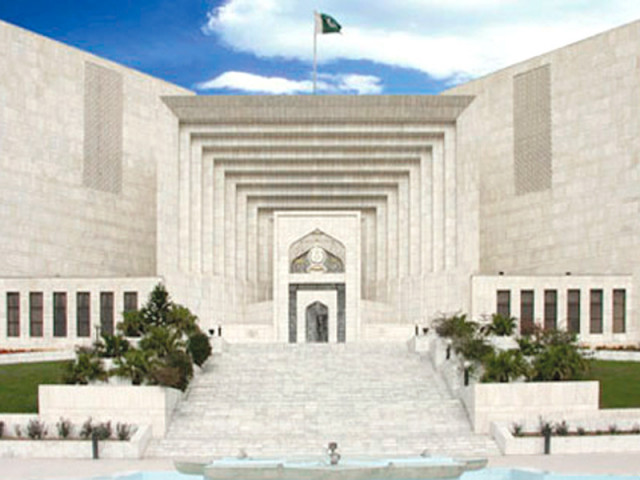27 petitions: SC to start hearing on Contempt of Court Act
Prime minister, law minister hold meeting to discuss strategy.

The Contempt of Court Act 2012 was enacted a few weeks ago amid opposition’s protest which termed the new legislation as a ‘black law’, saying it was aimed at saving the new Prime Minister Raja Pervaiz Ashraf from contempt of court.
Ashraf met with Law Minister Farook H Naek on Sunday to devise a strategy regarding the cases scheduled for next week, including the hearing of some 27 petitions against the new Contempt of Court act.
Naek informed the prime minister about his contacts with Pakistan Bar Counsel (PBC), who also petitioned the Supreme Court against promulgation of the new contempt law.
Pakistan People’s Party (PPP) senators Aitzaz Ahsan, Raza Rabbani and Babar Awan had also expressed reservations over a few clauses of the law.
On July 14, during a hearing on the contempt law case, the court had issued notices to the prime minister, law minister, the Senate chairman, the National Assembly speaker and others.
The implementation of the National Reconciliation Ordinance (NRO) order revolves around presidential immunity and it is going to come under discussion for the first time in the Supreme Court from Monday.
Earlier, former prime minister Yousaf Raza Gilani was disqualified by the Supreme Court for having committed contempt of court for not writing a letter, as per decision in the NRO case, to Swiss authorities seeking reopening of money laundering cases against President Asif Ali Zardari.
Immediately after the promulgation of the contempt law, some 27 petitioners had challenged it.
One of the petitioners, Advocate Ashraf Gujjar, former President Islamabad High Court Bar Association has directly challenged the presidential immunity, saying it was against the very concept of Islam and the Constitution.
Gujjar said that the new law was drafted poorly and he notified the court that immunity for president is against the principal of equity ensured in the article 4 of the Constitution adding that the immunity concept was also contrary to article 2, 2A, and 5 of the Constitution.
Article 2 deals with Objective Resolution that says that no law against the Islamic junction could be made in Pakistan.
Gujjar said that the government has provided a chance to settle the issue of immunity once and forever. Under the new law, immunity was sought for all public office holders in the light of article 248 that shows the contentions of the government to manage the court proceedings in the NRO implementation case.



















COMMENTS
Comments are moderated and generally will be posted if they are on-topic and not abusive.
For more information, please see our Comments FAQ